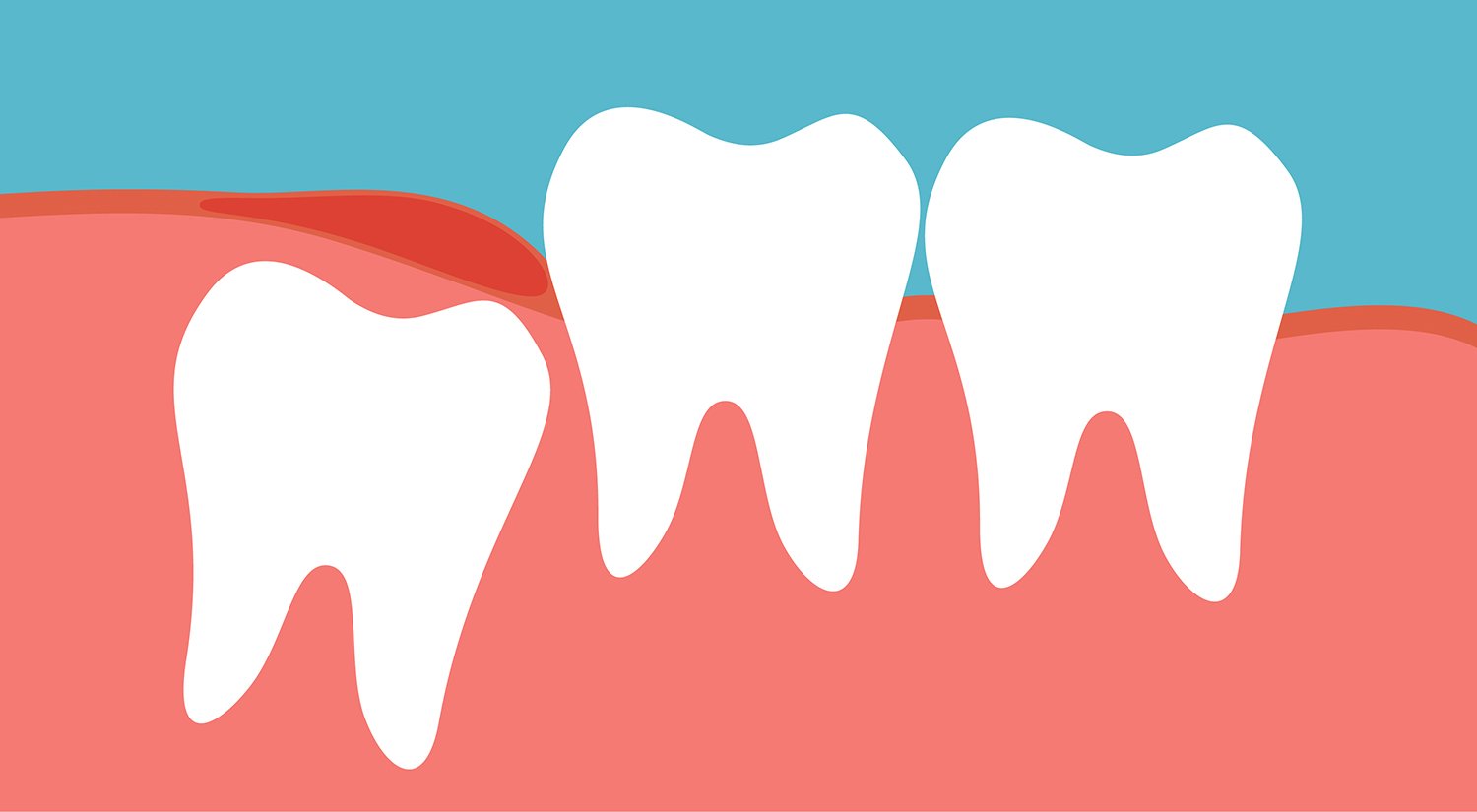The chordal, colloquially known as wisdom teeth, are the third molars which are located at the rear end of the mouth, that is, the last teeth. They are called wisdom teeth because they usually appear between 18 and 25 years old, the age at which people begin to be considered adults and begin to show maturity.
As wisdom teeth grow, they often cause problems and discomfort, causing many people to go to the dentist for a solution. So, if we are experiencing problems, is it normal for us to take them away?
Although it is the dentist who must assess each case and decide whether extraction is necessary or not, the truth is that there are certain cases in which it is recommended to remove the wisdom teeth:
- When the jaw is not large enough and the wisdom teeth do not have room to even peek through the gum.
- When the wisdom teeth can not emerge completely and the gum grows on them favoring infections.
- When the rest of the teeth are moving due to the growth of wisdom teeth and not having enough space in the jaw.
- When the wisdom tooth grows in a wrong position or wrong angle.
- When there is infection of the tooth or there has been damage to the bone.
HOW IS THE EXTRACTION OF A WISDOM TOOTH DONE?
Except in specific cases where there is an added risk of any kind, the intervention is carried out at the dental clinic using a local anesthetic.
It is a very simple procedure: the area is anesthetized and the gum is opened to access the tooth in case it has not emerged. After the extraction it is common to give some sutures that will dissolve after a while or will be removed when coming back to the consultation.
WHAT ARE THE RISKS INVOLVED IN THE EXTRACTION OF A WISDOM TOOTH?
We have already said that it is a very simple intervention that most of the time is carried out without any problem arising. However, there are some risks that we can not fail to mention and that must be controlled to avoid complications.
- Pain and inflammation of the gums.
- Bleeding during the days following the intervention.
- Pain and discomfort when opening the mouth.
- Damage to adjacent teeth or previous dental work (dental crowns and dental implants, fillings, bridges, etc.)
- Numbness of the mouth and lips due to damage caused during the extraction or inflammation of the nerves of the jaw.
- Infection after the intervention.
WHAT IS THE FOLLOW-UP AFTER THE EXTRACTION?
After the extraction, the recovery usually extends between one and two weeks. During this time it is important to maintain a series of care in order to avoid complications:
- Do not use mouthwash to rinse your mouth during the first days after the extraction, especially if they carry alcohol. You can make rinses using a mixture of water and salt, which will promote healing, or any other product that your dentist prescribes.
- He takes great care of oral hygiene. Although it is advisable to avoid brushing during the first hours, it is important that, from the next day, clean and brush your mouth thoroughly to avoid any infection.
- Use some anti-inflammatory to reduce pain and inflammation. It can also be helpful to use ice (placing it on the cheek, on the outside).
- Do not take very hot foods or that they can decompose in very small particles (for example, seeds). Ideally, you should follow a soft diet until the healing is complete.
If your wisdom teeth are causing discomfort or pain, it is important that you go to a specialist who values what should be done to address the problem. At the dental clinic in Dubai with certified spanish dentist we will be happy to help you. Ask for an appointment with us.

